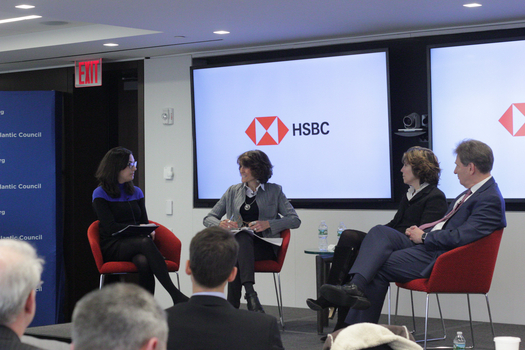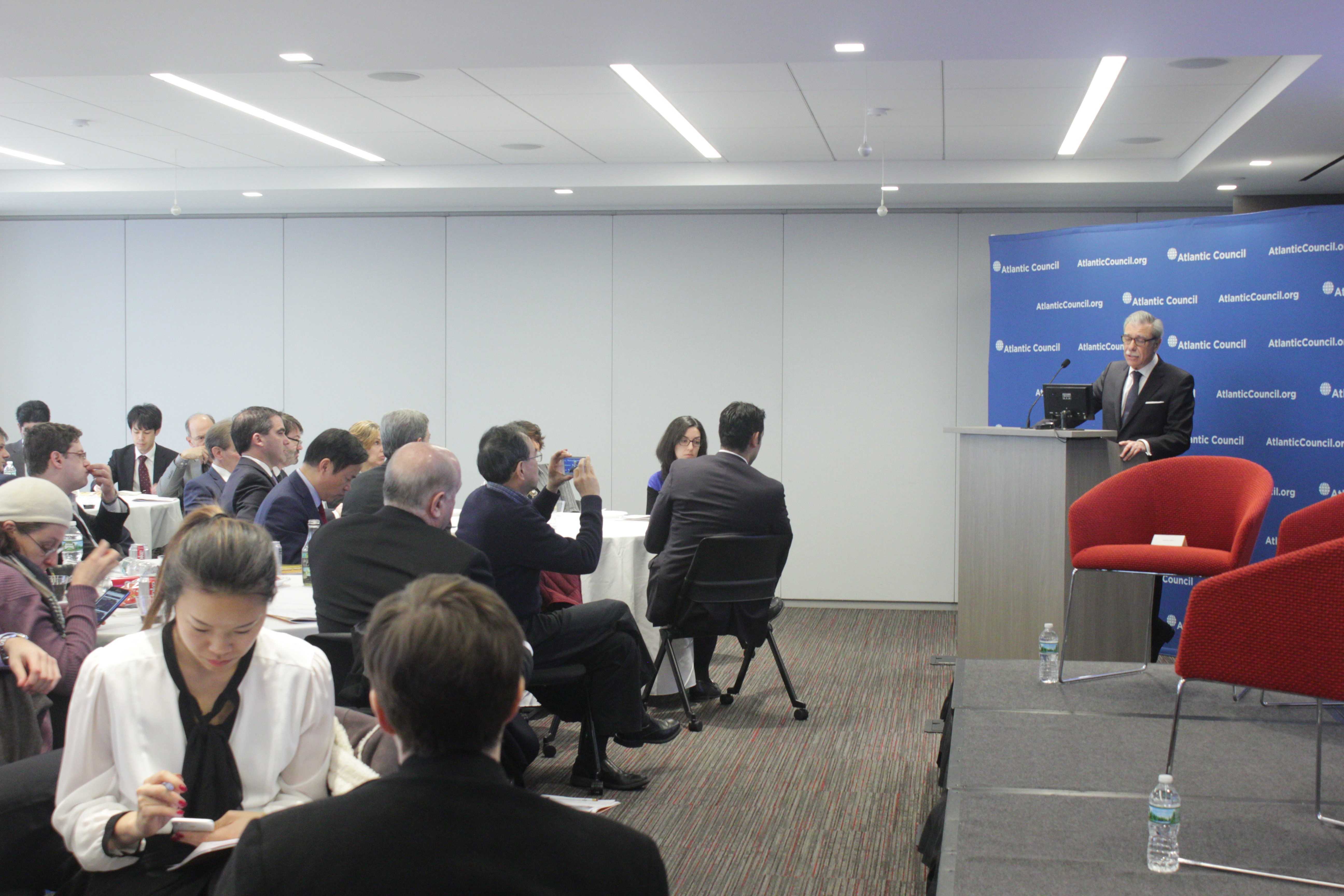 On Monday March 5th, at S&P Global Platts NYC headquarters, the Atlantic Council’s Adrienne Arsht Latin America Center and Global Energy Center, in partnership with HSBC, hosted an event titled “A Rising China’s Impact on Global Energy and the Implications for the United States,” with former US Secretary of Commerce Carlos Gutierrez. The event launched the Atlantic Council’s latest report, China, Oil, and Latin America: Myth vs. Reality. The event kicked off with the Director of the Adrienne Arsht Latin America Center, Jason Marczak, providing his insight into the changing geopolitics between China, Latin America, and the United States. He noted that China’s president will now likely rule China for quite some time, and how there has been a sharp focus by China on strengthening relations with Latin America, including China’s recent invitation for Latin America to join its Belt and Road Initiative. Next, HSBC’s Vice Chairman of Latin America Advisory, Andres Rojo, gave his latest thoughts on Latin America becoming an exciting and dynamic region and on the increasing complementarity of the China – Latin America relationship.
On Monday March 5th, at S&P Global Platts NYC headquarters, the Atlantic Council’s Adrienne Arsht Latin America Center and Global Energy Center, in partnership with HSBC, hosted an event titled “A Rising China’s Impact on Global Energy and the Implications for the United States,” with former US Secretary of Commerce Carlos Gutierrez. The event launched the Atlantic Council’s latest report, China, Oil, and Latin America: Myth vs. Reality. The event kicked off with the Director of the Adrienne Arsht Latin America Center, Jason Marczak, providing his insight into the changing geopolitics between China, Latin America, and the United States. He noted that China’s president will now likely rule China for quite some time, and how there has been a sharp focus by China on strengthening relations with Latin America, including China’s recent invitation for Latin America to join its Belt and Road Initiative. Next, HSBC’s Vice Chairman of Latin America Advisory, Andres Rojo, gave his latest thoughts on Latin America becoming an exciting and dynamic region and on the increasing complementarity of the China – Latin America relationship.
Secretary Gutierrez provided keynote remarks where he noted how swiftly and deftly the Chinese have maneuvered in Latin America. He also mentioned the announcement by President Trump on sweeping tariffs on steel and aluminum. He noted this will not really hurt China, except to say that President Xi’s closest economic advisor, Liu He, was in Washington DC at the time to try and meet with President Trump. However, President Trump did not meet with him, and announced the tariffs while he was in town, two moves China is likely to interpret as symbolic. He left the audience with this final remark: he recently asked a renowned energy expert that, given currently 80 percent of energy produced in the world is produced by fossil fuels, how much did the expert think it would be in 2035? The answer: 78 percent. This shows that while there is a lot of hope and promise of a global rebalancing away from fossil fuels towards renewable energy, there is also some skepticism whether there will be any meaningful change in the near future.
Alison Sider from the Wall Street Journal moderated our expert panel. Patricia Vasquez began the panel by sharing some of the most salient findings of her report with the Atlantic Council, including that in 2013 China became the world’s largest importer of oil, which complemented well with the massive increases in Latin America’s proven oil reserves, mainly due to Venezuela making their reserves official. This provided the base for Latin America’s rise as the source 13 percent of China’s oil imports in 2016, up from 2 percent in 2005. This development was facilitated by massive loans and foreign direct investment to from China to Latin America’s oil and gas industry over the past decade.
Amy Myers Jaffe remarked that some of China’s deals may be linked to a quid pro quo where China invests or lends large sums of money in exchange for strategic relationships or promises of votes going China’s way at the United Nations, for example. She also mentioned how it is in China’s interest to see the Paris Agreement to be successful. This helps push the world toward buying more renewable energy products like solar and wind where China is a leader or positioning to be a leader.

